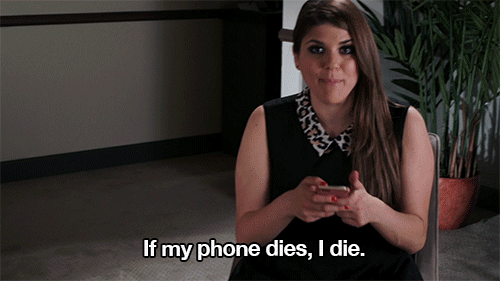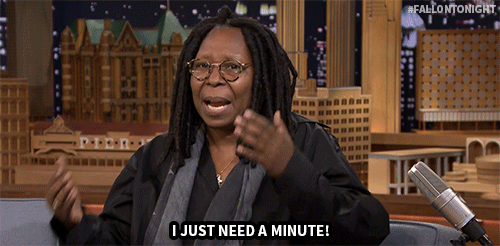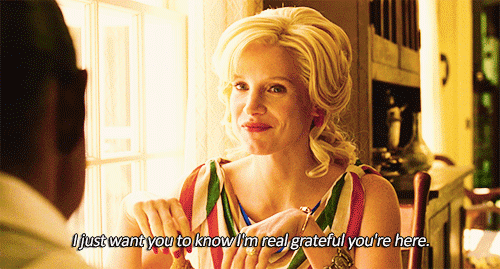Are You An Anxiety Junkie? 7 Strategies To Break The Addiction
Take charge of your emotions and your life.
 Unsplash
Unsplash Our world is in the midst of an emotional meltdown. As a psychiatrist, I’ve seen that many people are addicted to the adrenaline rush of anxiety, known as the “fight or flight” response, and they don’t know how to defuse it.
An example of this is obsessively watching the news about natural disasters, trauma, economic stress and violence, and then not being able to turn bad news off. Also, people are prone to “techno-despair.” This is a state of high anxiety that results from information overload and Internet addiction.
It’s also related to our super-dependence on smartphones and the panic of feeling disconnected if technology breaks down and we can’t access emails or other communications — a new version of what’s psychiatrically known as an “attachment disorder.”

FMdos
I’ve helped many patients address the adverse effects of techno-despair, such as insomnia, nightmares, restless sleep and ongoing angst. You, too, can break your anxiety addiction and lead a more peaceful life.
To determine your current level of anxiety addiction, ask yourself these questions:
- Do I worry about many things every day?
- Is it difficult to stop watching anxiety-provoking news on TV or the Internet, though I try?
- Do I experience separation anxiety when I can’t access my smartphone or computer?
- Do I make problems larger, not smaller?
- Do I worry about things that no one around me worries about?
- When one anxiety is solved, do I immediately focus on another?
If you answered “yes” to all six questions, worry plays a very large, addictive role in your life. Four to five “yes” answers indicate a large role. Two to three “yes” answers indicate a moderate role. One "yes” indicates a low level. Zero “yes” answers suggest that you’re more warrior than worrier!
To quiet anxiety and turn off your flight or flight response, it’s important to re-train your brain to send chemicals to counteract this powerful biological response. Otherwise, anxiety can become an addiction.
In contrast, with a calm biology, you can generate endorphins — the blissful natural painkillers in your body. To master your anxiety, practice the techniques below to quiet your system. They will help you achieve immediate and long-term results.
Here are 7 strategies to overcome anxiety addiction.
1. Eliminate caffeine, sugar and other stimulants.
These fuel the “fight or flight” response.
2. Avoid people who reinforce your fear.

Tenor
These are called “emotional vampires.” They are biological irritants. Stick close to positive people.
3. Stay away from violent newscasts, arguments, the Internet, paying bills or other stress inducers, especially before sleep.
4. Set healthy limits and boundaries.
To combat stress, it’s important to realize that “No” is a complete sentence and a healthy way to set limits and boundaries with stress-inducing people and situations.
5. Pause when agitated.

ATTN
Make this vow: “I will never have a conversation with someone, send an email, or make a decision when gripped by anxiety.” No matter what the upset is, do not act until you have gained calm and composure.
6. Use this progressive relaxation technique.
In a comfortable position, sitting or lying down, take a few deep breaths while letting your body go as limp as possible. When you’re ready, begin by tightening the muscles in your toes. Hold to a count of 10, and then relax.
Enjoy the relief of tension melting. Do the same with flexing your foot muscles, and move slowly through your entire body: calves, legs, stomach, back, neck, jaw and face, contracting and releasing each area.
7. Stay in “the now.”

LiteFM
Try not to project negative scenarios about the future. Stay solution-oriented in the present moment and be grateful for what is positive in your life.
Being aware of what triggers your anxiety and mindfully making choices to cope with them provides emotional freedom. Then you won’t simply be reacting when your buttons get pushed. You will be better able to take charge of your emotions and your life.
.......
Judith Orloff, MD is the author of The Empath's Survival Guide: Life Strategies for Sensitive People, upon which her articles are based. Her work has been featured on The Today Show, CNN, the Oprah Magazine and USA Today. She is a New York Times best-selling author of Emotional Freedom, The Power of Surrender, Second Sight, Positive Energy, and Guide to Intuitive Healing. Connect with Judith on Facebook and Twitter.
YourTango may earn an affiliate commission if you buy something through links featured in this article.

